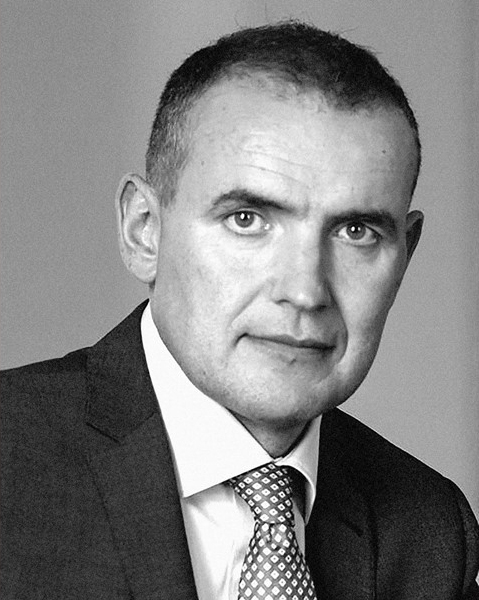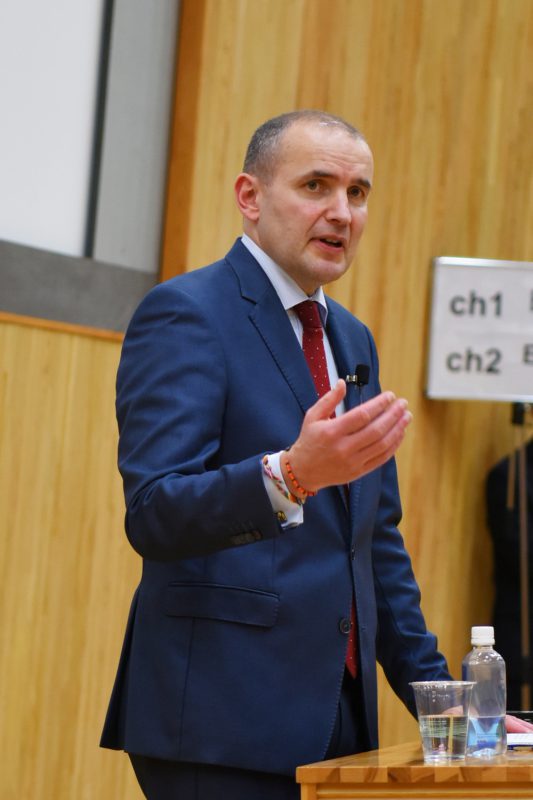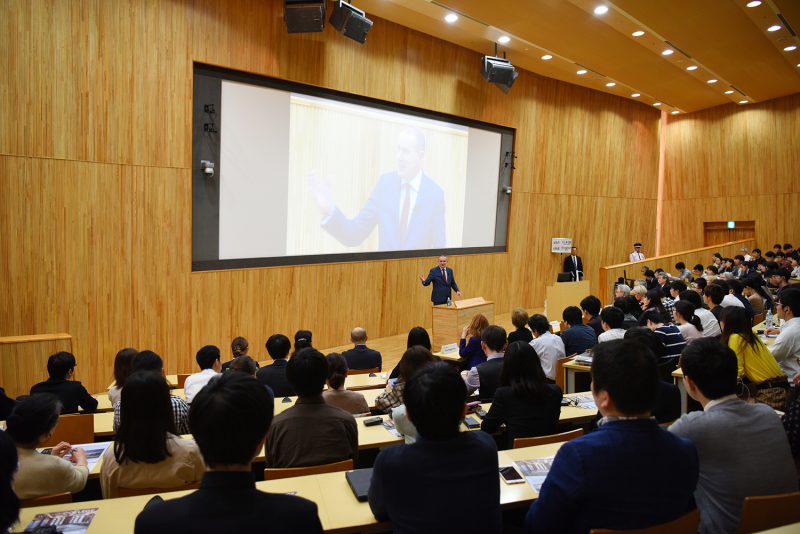Tokyo College Event “The Might of the Weak: The Role of Small States in International Relations and the Case of Iceland” by Guðni Thorlacius Jóhannesson, President of the Republic of Iceland

Tokyo College held a public lecture on “The Might of the Weak: The Role of Small States in International Relations and the Case of Iceland”
On October 24, 2019, Guðni Thorlacius Jóhannesson (President of the Republic of Iceland) gave a lecture on “The Might of the Weak: The Role of Small Sates in International Relations and the Case of Iceland.” President Jóhannesson, who has a professional background as a historian, introduced the history and present circumstances of Iceland, and discussed how small states can be influential on the international stage.
Connected history—the birth of Iceland
After an explanation of the purpose of the lecture from Professor Masashi Haneda (College Director), President Jóhannesson gave the examples of the contribution of the Icelandic Sagas to world literature, and the impact of volcanic eruption on world history, to explain the influence that the events of a single region can have on other states and areas. He then explained how, under the influence of nationalism in Europe, Iceland became independent from Denmark in 1918 and established itself as a sovereign state, became a republic in 1944 after the Second World War, and has come to play a unique role postwar as the smallest United Nations Member State.
Playing a role on the world stage
President Jóhannesson explained how Iceland, which has a population of only 350,000 people, has overcome the dilemma of how to secure a position in which it can speak out internationally while protecting its own national interests. In the Cod Wars which broke out between Iceland and Britain over fishing rights (1958 to 1976), not only was Iceland able to take strategic advantage of the international situation of Cold War to defeat the larger Britain, but it also contributed as a result to the creation of the international rule for the fishing industry establishing 200 nautical mile exclusive economic zones. Furthermore, Iceland supported the independence of three similarly small Baltic states (Estonia, Latvia, and Lithuania), and created friendly relationships with them. President Jóhannesson explained that, although they may not be able to directly control the decisions of superpowers like the United States, small states can make their voices heard on the international stage.

As a model for small states
President Jóhannesson emphasized in his lecture that in reality international relations are more complex than the realism proposed by Greek philosopher Thucydides, according to whom the influence on world affairs depends on the size of the country and its army; fortunately, even a small country can be influential. Iceland has also become a global leader in terms of gender equality, ranking at the top of the World Economic Forum’s Global Gender Gap Index for the past 11 years. It is hoped that Iceland will continue to serve as a model for small states in all areas in the future. President Jóhannesson said that, “We are living in a world of globalization, of ever-increasing connections between nations and states, and that is great. But we must avoid negative uniformity where everyone is in the same mold. So, Icelandic literature, Japanese literature, Icelandic culture, Japanese culture, should be part in the mosaic that is world culture.”

Q&A session
The Q&A session saw a variety of questions from students and researchers, concerning issues such as: how international relations will develop in the 21st century, in which the number of countries with increasing tendencies towards nationalism is on the rise; Iceland’s position regarding independence and conflict in regions such as Kosovo and Taiwan; and the policies that should be taken in remote islands in Japan where the birthrate is declining and the population is aging. President Jóhannesson spoke of how vulnerable communities are given financial support in Iceland, which is undergoing a process of urbanization, and that trials are being undertaken on the use of AI technology to maintain the Icelandic language.
| Date(s) | October 24th (Thur), 2019, 3:00-4:30pm (2:30 pm Doors Open) |
|---|---|
| Venue |
Fukutake Learning Theater, The University of Tokyo (B2 Floor, Fukutake Hall, Hongo Campus) |
| Registration | Pre-registration required (160 seats available -First come, first served) |
| Language | English (English-Japanese simultaneous translation available) |
| Organized by | Tokyo College, The University of Tokyo |
| Contact | tcevent@pco-prime.com |















